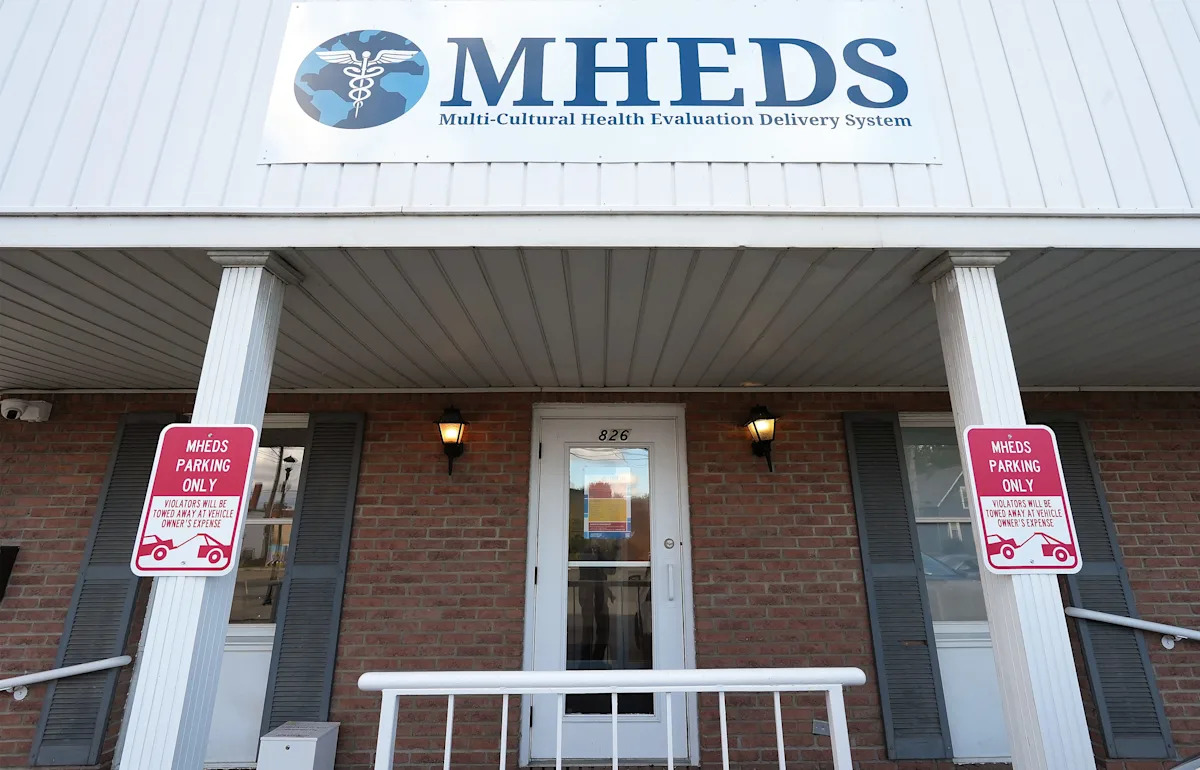Set aside for a moment your thoughts on federal spending cuts in their many forms, including the process of pulling back money that’s already been approved.
For some, those cuts represent breaking faith with accepted norms and with programs that some see as part of our collective identity.
For others, they represent long-overdue moves from a government that’s struggling to pay the interest on a $38 trillion debt.
More: 2 million Pa. residents poised to lose SNAP benefits in November if shutdown drags on
The Erie Community Foundation isn’t arguing either side of the issue.
“That’s not our role,” said Karen Bilowith, CEO of the organization.
The foundation does, however, see a role for itself in understanding the needs of its member nonprofits.
Along with the Nonprofit Partnership and the Civic Impact Project, the Erie Community Foundation conducted a survey this past summer to measure the effect of federal cutbacks on local nonprofits.
What does the survey tell us about Erie nonprofits?
In some cases, the effect has been substantial, according to the survey, which posed questions of large and small nonprofits, including hospitals and universities.
About 16% of the 500 nonprofits surveyed responded.
Of those that responded, 37% had previously received federal funding. Of those, 15 had lost federal funding in the amount of $13.5 million.
As a group, the participating organizations said between 29 and 53 staff members have been cut. Twenty-four organizations reported they are concerned about how cuts will allow them to respond to community needs.
Nine nonprofits went even further, saying they were concerned about the collapse of their organizations.
Survey: Will the pause in SNAP benefits in Pennsylvania affect you? We want to hear from you.
Erie nonprofits report mixed effects from spending cuts
Groundwork USA is a national network of community-centered nonprofits that work to promote environmental, economic, and social well-being.
Groundwork Erie, founded three years ago, has employed a few dozen young people, who have picked up litter, maintained vacant lots, planted hundreds of trees and transformed vacant lots on East Fourth Street into an urban farm, providing food to Emmaus Soup Kitchen and a number of pay-what-you-can farmstands.
Executive Director Erin Carey said Groundwork Erie is also training young people to be arborists and tree care professionals.
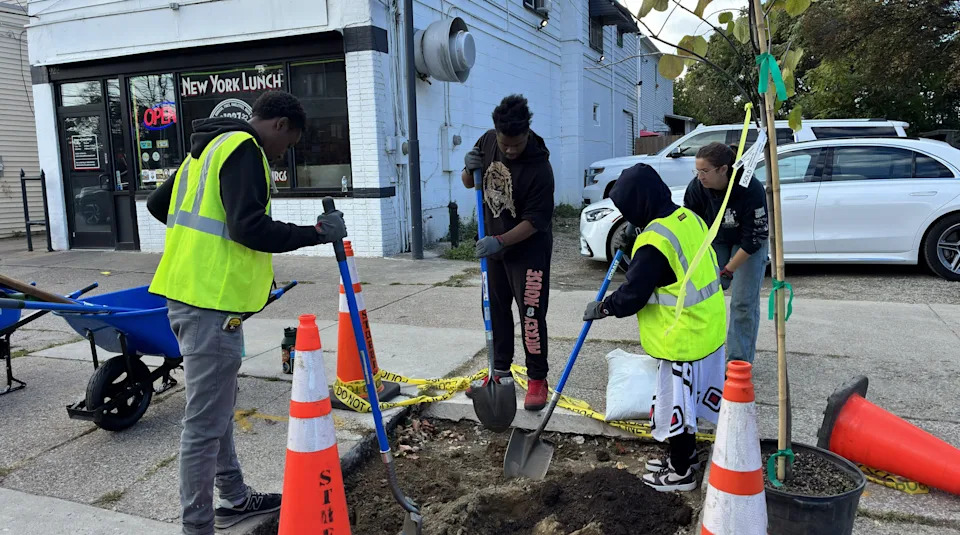
Employees of Groundwork Erie plant a tree outside of New York Lunch on East Avenue.
The future is now in question following an announcement this spring that a $328,000 U.S. Forest Service grant had been eliminated.
“That was a huge grant for us that was over three years,” said Carey, who hopes that an additional $200,000 in federal funding will not be affected.
“This is the new reality and we have to learn how to live with it,” she said.
That doesn’t mean she likes it.
“I want to live in a country where the government is going to follow through on their promises and not pull the rug out from underneath you,” she said.
MHEDS budget takes 20% hit as refugee programs end
The Multi-Cultural Health Evaluation Delivery System known as MHEDS provides health care to Erie’s multicultural community.
As part of that role, MHEDS has historically conducted health assessments, reimbursed by the federal government, of refugees settling in Erie.
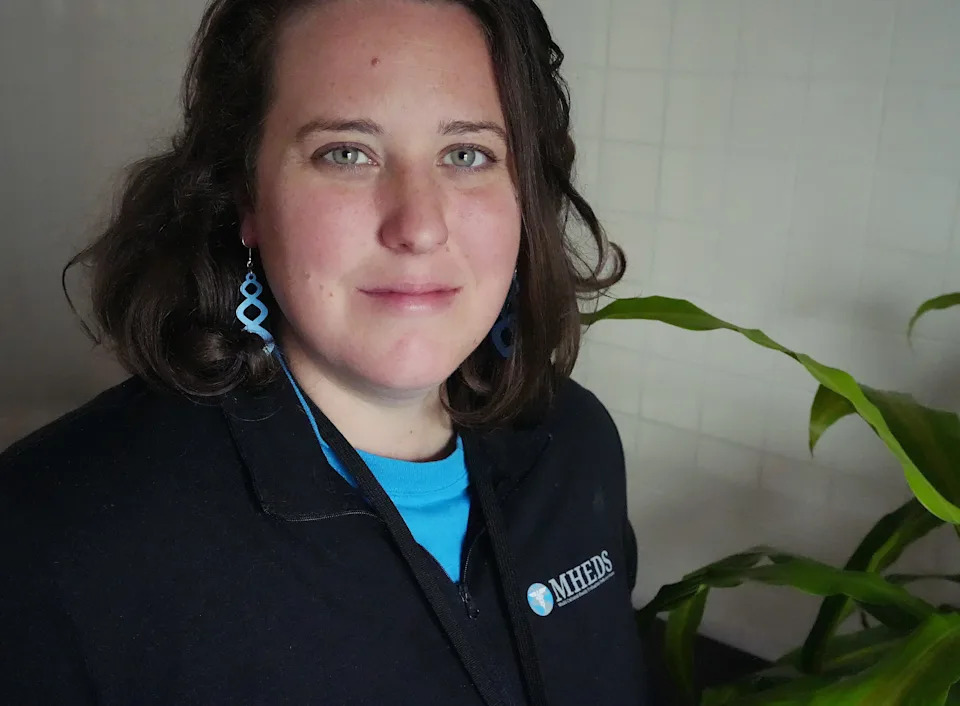
Alivia Haibach, CEO of the Multi-Cultural Health Evaluation Delivery System
Alivia Haibach, CEO of MHEDS, said that job disappeared earlier this year when the federal government shut off most refugee programs.
“That was about 20% of our annual budget,” Haibach said. “With no resettlement, that is 20% of our annual budget we have to find elsewhere.”
More: Refugees help Erie – now it’s our turn to help them | Opinion
The impact has been felt in other ways, said Haibach, who explained 90% of their clients speak a primary language that is not English.
While refugees no longer arrive in Erie, she doesn’t expect to see a change in the number of patients.
Attrition is low, she said, noting that refugees favor health care providers who speak their own language.
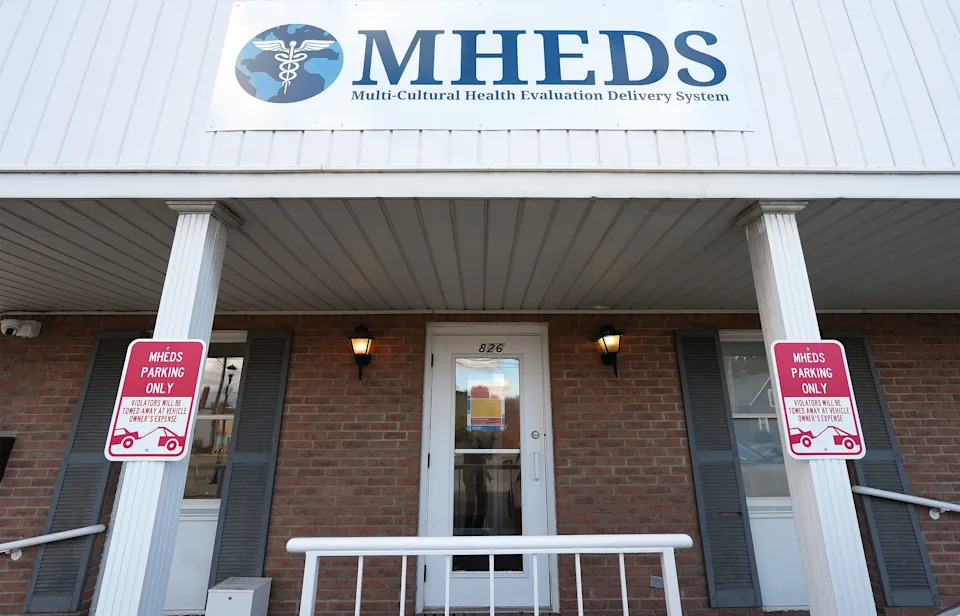
The Multi-Cultural Health Evaluation Delivery System office at 826 Parade St. in Erie.
What’s more, many look to their doctor’s office for help as they search for resources in the community.
“Because of the cuts in social services, my staff has been doing an increasing amount of casework,” she said.
‘He has been a blessing’: Son with autism has taught refugee father how to be patient
The trickle-down effects of federal budget cuts seem likely to become more pronounced in the coming months as Medicaid cuts take effect.
Changes in eligibility and cost are expected to eventually leave 11 million Americans without health insurance, according to the Congressional Budget Office.
But the patients won’t disappear. And MHEDS is obliged to treat them whether or not they can pay, Haibach said.
“It’s changing the math dramatically,” she said. “I don’t think any of us know what next fall is going to look like if millions of people fall off the Medicaid rolls.”
Healthcare need: Despite Trump’s Medicaid claim, Pa. advocates say undocumented families lack benefits
Others, like the Inner-City Neighborhood Art House, have never received federal funding.
Kelly Stolar, the group’s executive director, said she’s not complaining.
“I don’t necessarily feel that it is the government’s responsibility to provide everything to everyone for free,” she said. “There are many great programs out there that could be funded by the government, as well as those that possibly should not be funded by the government.”
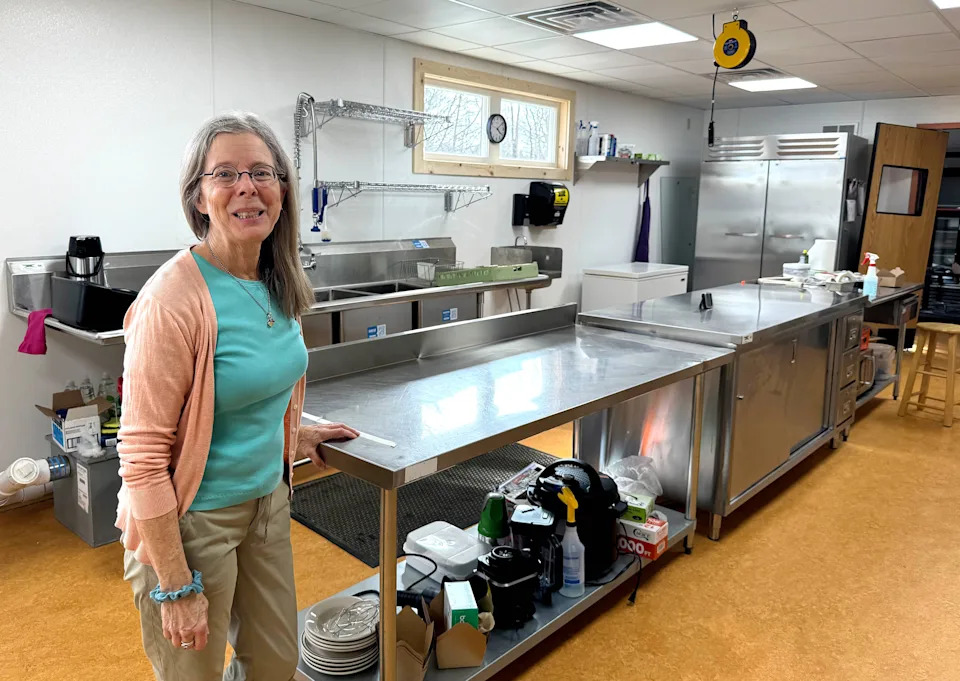
Marti Martz, executive director of Edinboro Market, shows off the commercial kitchen at 211 Mill St., Edinboro.
Marti Metz, executive director of the Edinboro Market, said the market’s mission — to provide access to fresh local food and to serve as an entrepreneurial marketplace for small farms — hasn’t changed.
But budget cuts have introduced an element of uncertainty.
Federal dollars, in the form of a $699,000 Appalachian Regional Commission grant, helped build the market.
“I think we are incredibly fortunate that the renovation was pretty much completed before all of this started,” Metz said.
Reimbursement requests that were once processed quickly are now taking weeks, she said.
Marti said Edinboro Market is also awaiting word on three pending equipment grants, two of them from the U.S. Department of Agriculture.
The grants are needed to complete what she said will be the first shared-use kitchen in Erie County.
Most of those requests are now going through what she calls a “high-level review.”
Metz has her fingers crossed.
“It’s just one day at a time,” she said. “Do we continue to push? The vision is still there. I don’t know how it’s going to play out.”
Rapid Response Fund offers help
Bilowith said the loss of federal funding can’t entirely be solved through philanthropy.
But the community foundation has launched an effort to help blunt the pain of those cuts.
The Community Foundation in March reopened the Rapid Response Fund that was created in 2020 to address needs associated with the COVID-19 pandemic. A $250,000 contribution from the foundation was matched by a like-sized donation from the Hagen Family Fund.
Bilowith said two emergency grants were awarded in March to refugee resettlement agencies affected by funding disruptions.
In June, the Foundation added more than $55,000 to the Rapid Response Fund that was raised in the Erie community.
Public broadcasting: As WQLN adjusts to budget cuts, donors step up with 185% increase during Erie Gives
Bilowith stressed that it’s not the role of the community foundation to endorse or debate the wisdom of federal spending cuts.
But it is the foundation’s role to help nonprofits navigate through that challenge.
“Federal cuts are not just financial setbacks — they impact the well-being of the Erie families who rely on these services,” Bilowith said in a statement.
Contact Jim Martin at jmartin@timesnews.com.
This article originally appeared on Erie Times-News: Erie County PA nonprofits tighten belts as federal funding declines

